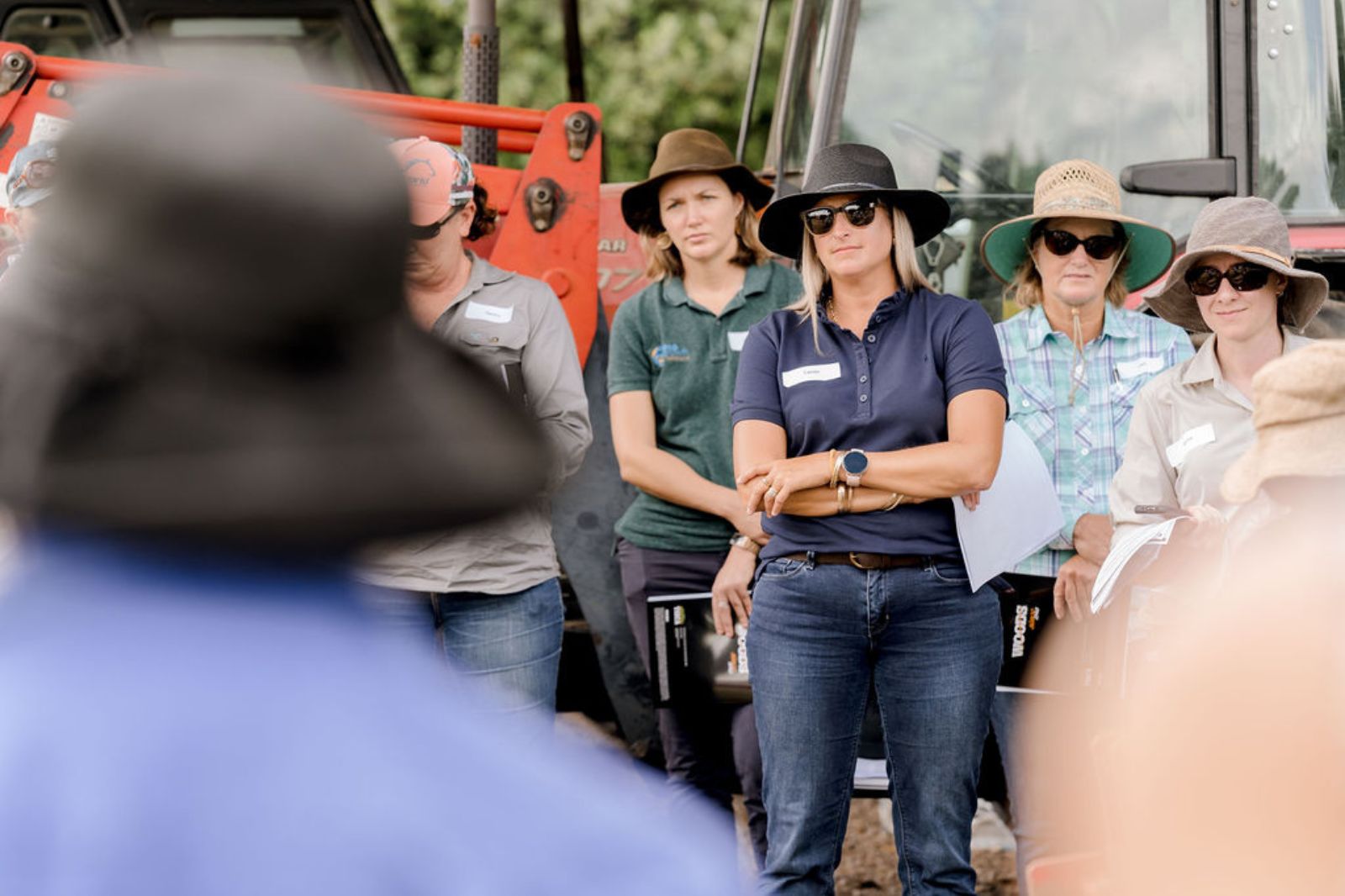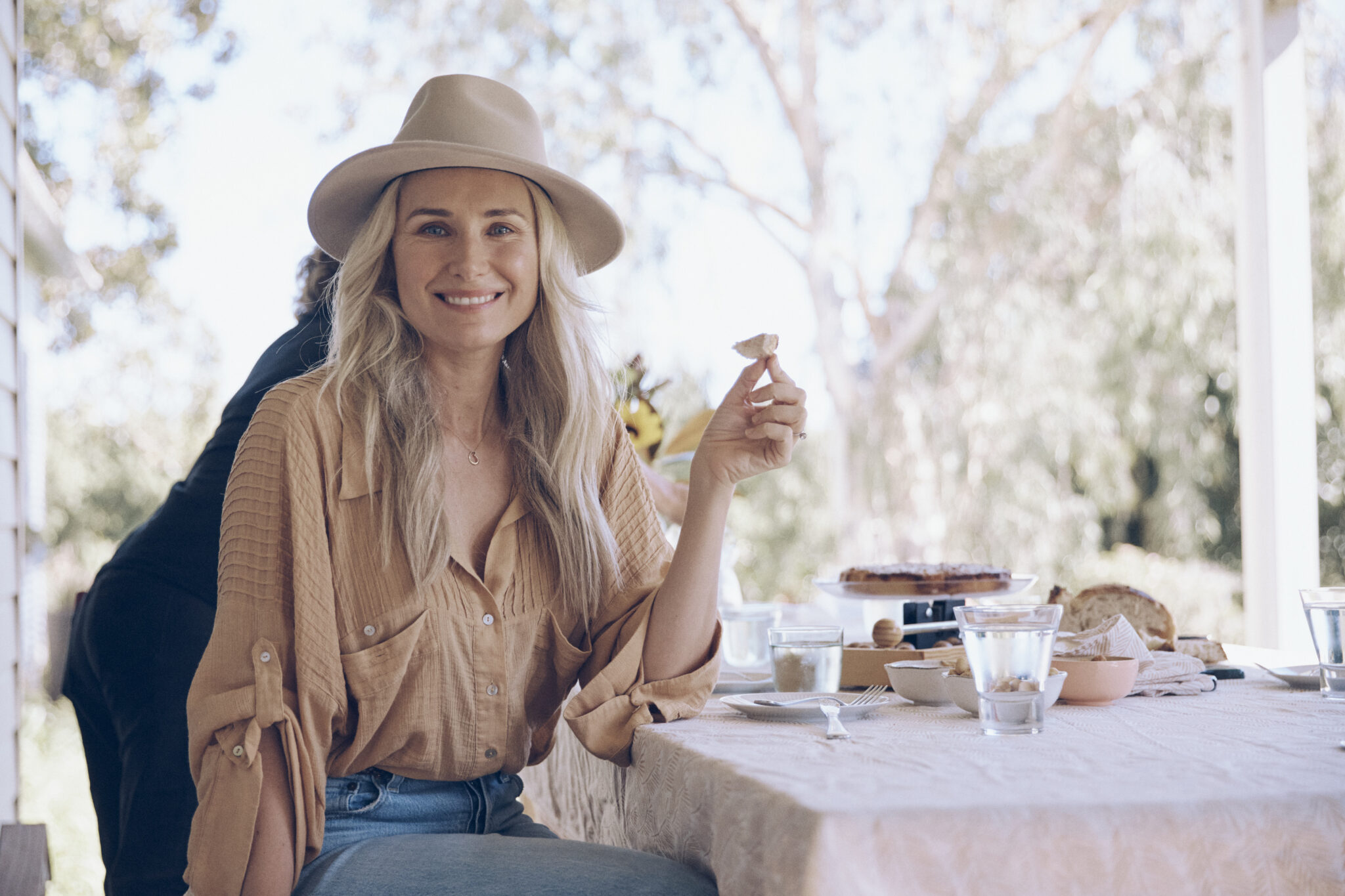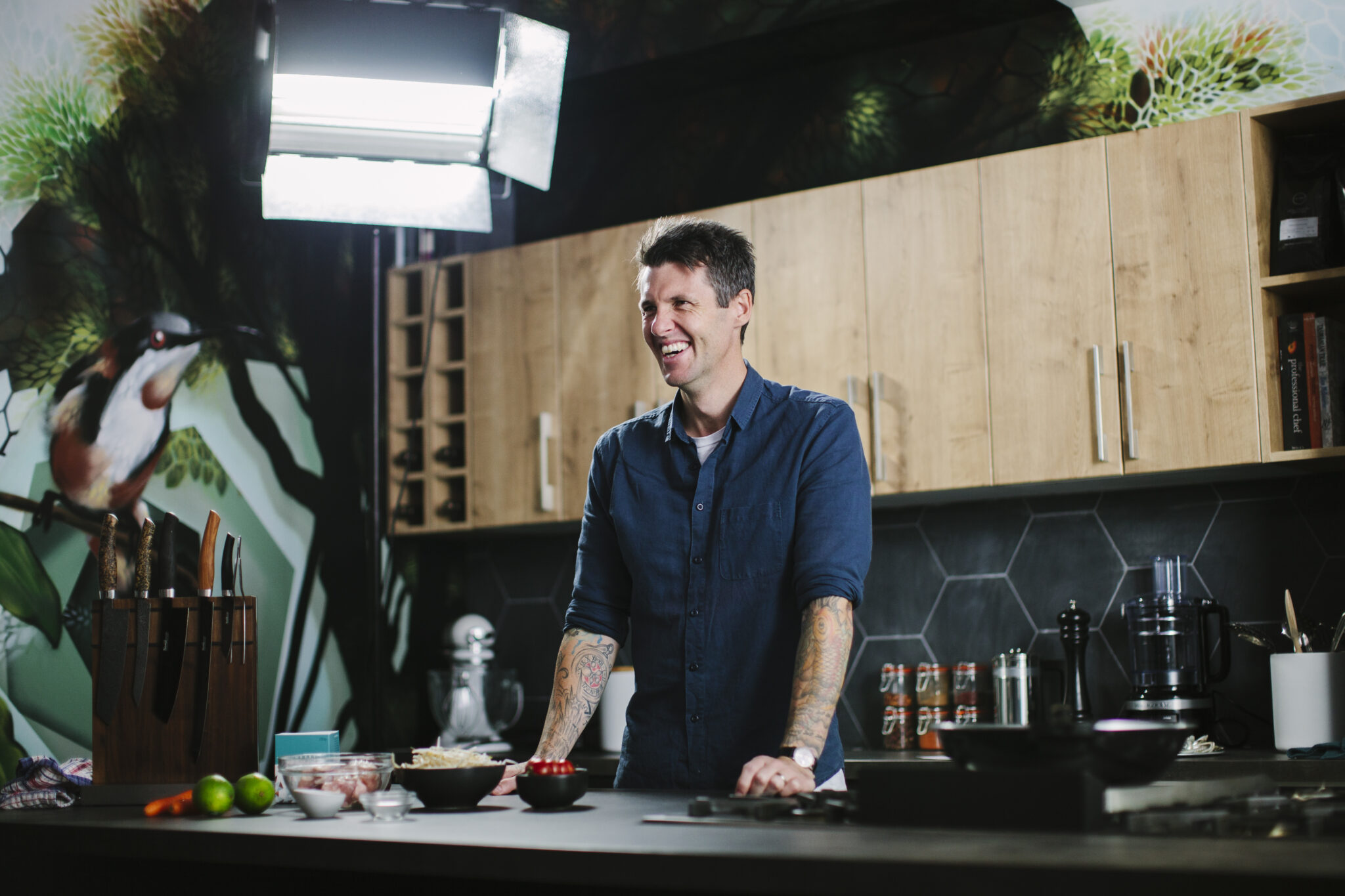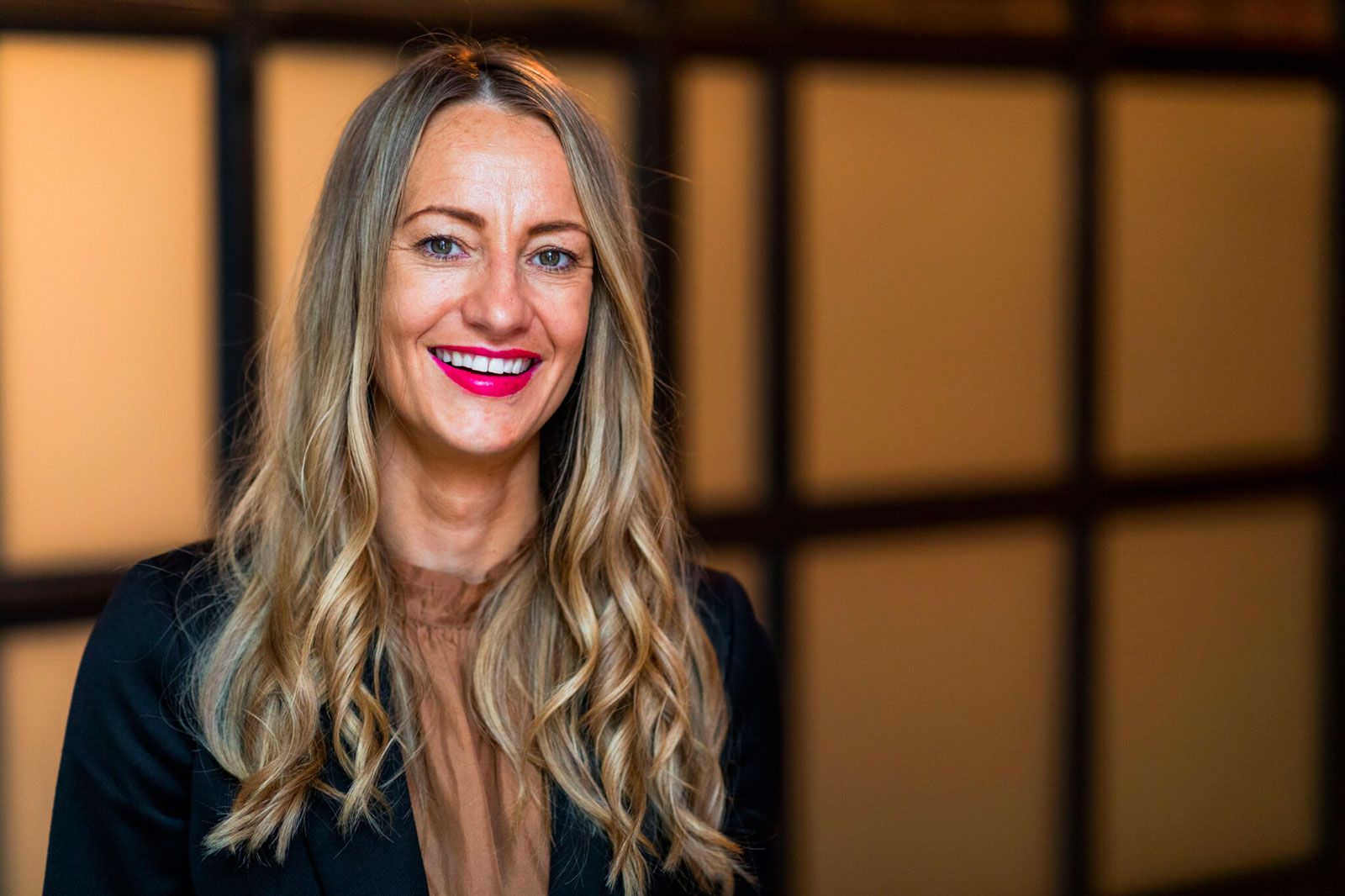Macadamia farmers Diane Cheal and Lisa Maclure come from very different locations and backgrounds but they certainly have a lot in common now.
With no farming background, TAFE teacher Lisa Maclure undertook a huge learning curve when she and husband Daniel bought their two macadamia farms at Dunoon in the NSW Northern Rivers.
“When we moved back to the area, we decided to go into macadamia farming,” she says. “It felt like a welcoming industry that we could fit into without coming from a background of farming.”
Lisa also had the added challenge of managing the farm on her own while Daniel stayed working in the IT industry. “He helped in his spare time,” says Lisa, “but it was a steep learning curve.”
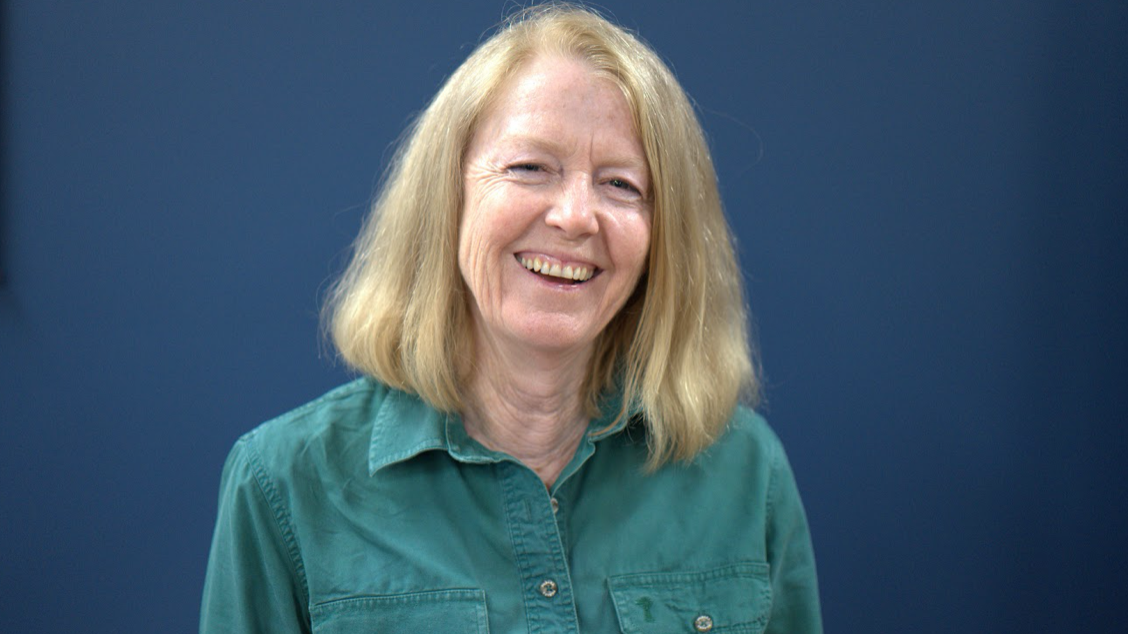
Diane Cheal wasn’t always a macadamia farmer, however Diane’s father, Graeme Cheal, has a long history in farming. He bought the farm, located in Beerwah Queensland, 58 years ago, when he was 19 years old and started out as a Golden Circle farmer growing pineapples. Twenty years ago, he took on a new challenge and planted macadamia trees.
“In this time he has certainly seen a lot of changes and had his ups and downs,” says Diane.
One of the biggest downs the farm experienced was in early March 2022, when an intense and violent hailstorm worked its way through the orchard.
“We had to bulldoze the custard apples and avocados, and great big 100-year-old eucalypts and bloodwood trees that fell into the dam,” she says.
As Diane became more involved in the farm work, discussions were had about succession planning for the farm. As a result, she and her father agreed on a plan where she would “step into the tractor” and carry on the family farm after he died.
“I am extremely hands on and he treats me like a bloke as I am expected to do all things,” says Diane.
She explains that she sees the work she does with her father as a form of apprenticeship, where she isn’t expected to always be in the sorting shed, rather she is involved in all aspects of the farm.
While this has been tough, it also means that Diane has developed her abilities, so she is able to figure out the safest way to fix something or complete a task.
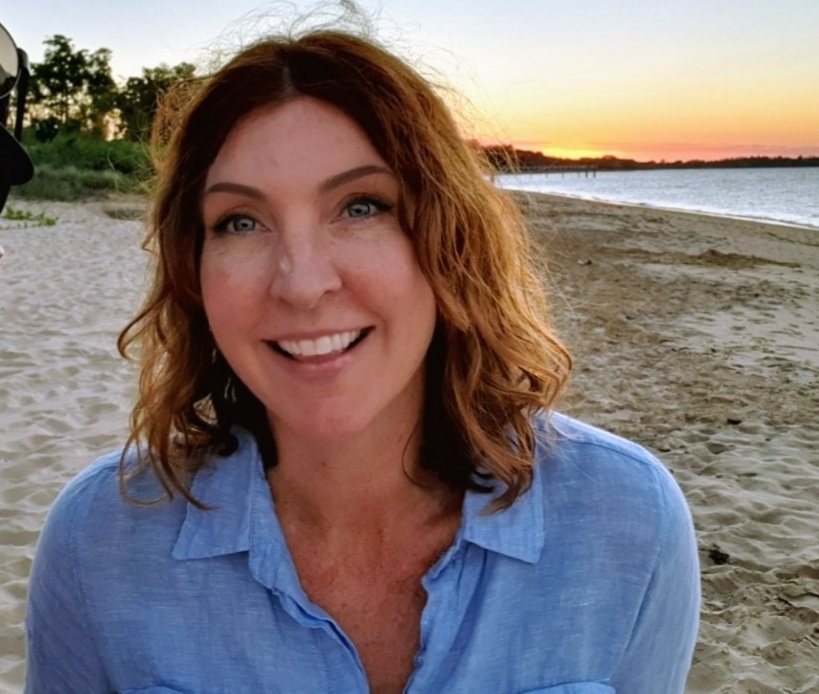
“There’s a lot of heavy lifting and a lot of broken machines, and I’ve had to learn machinery maintenance, including how to fix a flat battery and how to swap over add-ons, on the machines,” she says.
The improvements Diane has made on the farm have centred around the soil, and she explains that she is “extremely invested” in the soil and erosion control.
One of the things she has focused on with her orchard floor management is ensuring that trees don’t have exposed roots. “Exposed roots are not happy roots,” she says.
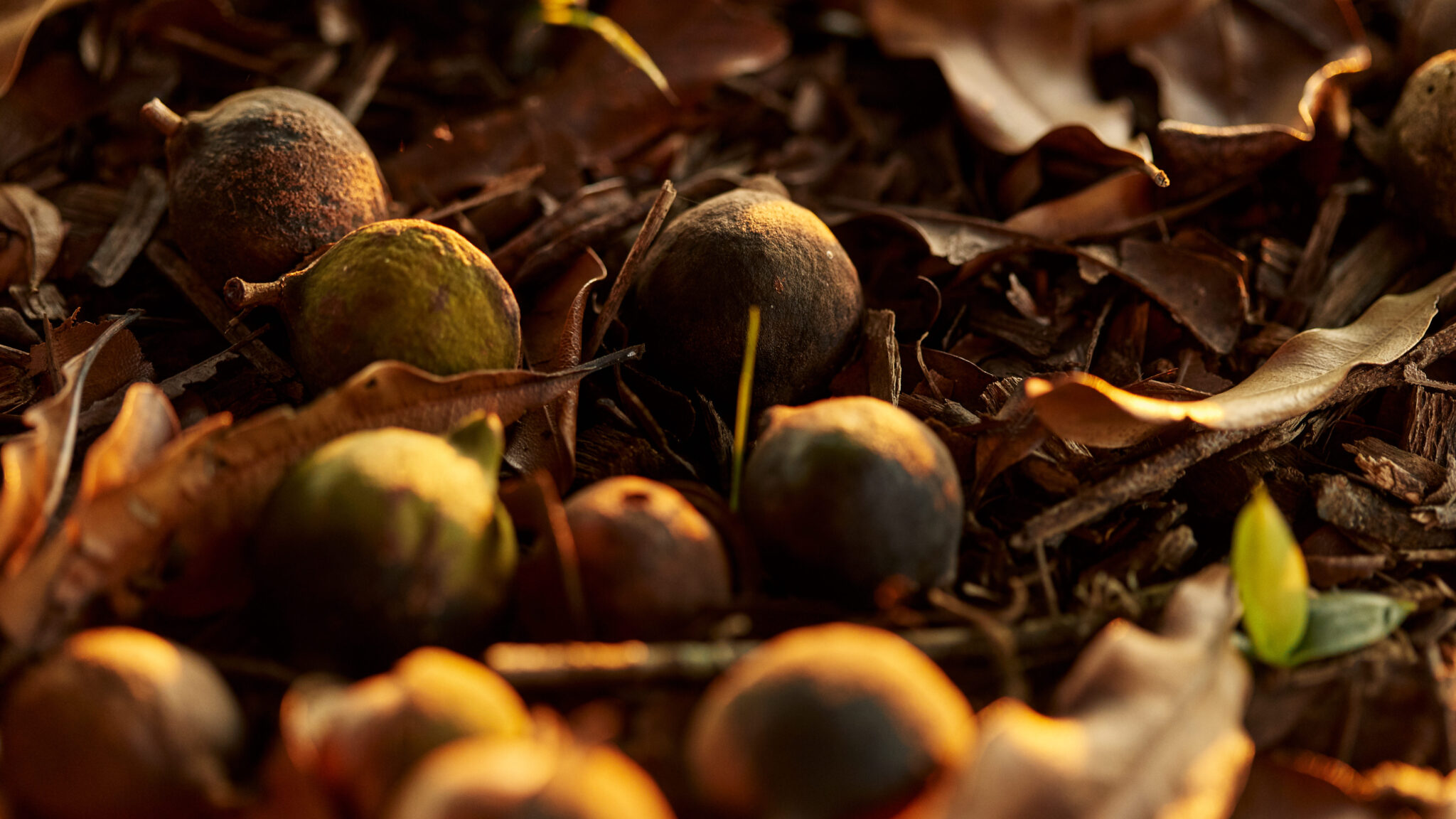
Despite the fact that the damaging storm occurred early last year, there is still much work to get the farm back to the same level of production. The main priority for the next few years will be to help the trees recover as much as they can.
When it comes to strengths, Diane says her introverted nature is a plus.
“I am happy to sit on the mower all day and listen to my podcasts, and I have an affinity with nature and respect the natural world, thinking of myself as a steward of the land as opposed to a farmer. I want to learn more about how to support the land, rather than just take from it,” she says.
Diane says challenges women can face in the macadamia industry include the hard manual labour, but also the sense of isolation. This is particularly the case for extroverted women who are used to having a chat and working with people.
Diane’s suggestion for women wanting to be involved in the macadamia industry is to go and spend time on a macadamia farm to get a feel and taste for it.
“Go in with your eyes open, know it is hard yakka and gather information and resources as this is how you learn best,” she says.
One of Diane’s learning curves was dealing with adversity.
“The storm was shocking,” she says, adding that she was so pleased her father had a supportive group of people who came and helped them.
Diane has realised that despite the setback, they didn’t crumble. They are still there, and they are working at getting back to full strength. What they have learnt from last year’s storm will prepare them for adversity in the future.
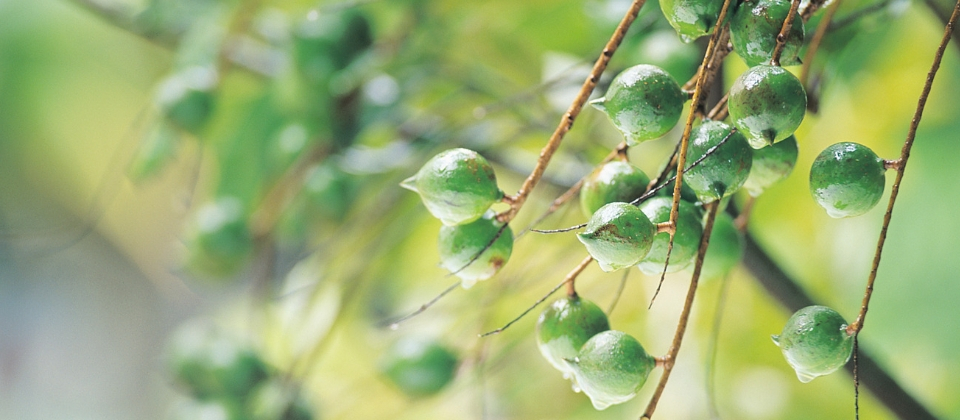
Lisa’s focus is also on improving the farms for the long term and an ongoing task for Lisa is soil improvement and sustainability.
“That’s more about the organic inputs to help the sustainability of the soil,” she says.
She is also continuing with inter-row plantings to attract beneficial insects and pollinators and provide good soil health.
“I take time to nurture the farm and move it along,” she says.
“My knowledge of mechanics and engines isn’t great, so I find people to do this for me.”
Lisa has been involved in some of the Australian Macadamia Society’s women’s events and sees them as very beneficial.
“At the start of COVID, I got involved with the online groups for women,” she says.
Like Diane, she has also been to some of the Women in Macadamias workshops which provided “a great opportunity” to network.
Lisa believes that it is important for women in the macadamia industry to succeed and prosper.
“We face a lot of challenges and need to be able to change the perceptions that are out there.”
Lisa cites the example of people assuming the farmer is always the man.
“My husband would often refer people to me, as I knew more of what was happening on the farm than him,” she laughs.
Lisa is adamant she would recommend women enter the macadamia industry.
“Women have a lot of skills and our industry draws people from a vast array of backgrounds. If we can network together, we can share those skills, whether we are marketers, teachers or agriculturalists,” she says.
“I wouldn’t change anything from the past six years,” she says.
“I’ve had my ups and downs and learnt so much. Often, I’ll get to the end of an orchard row, covered in dirt, and I’ll think how lucky I am.” Then it’s time for a shower!




